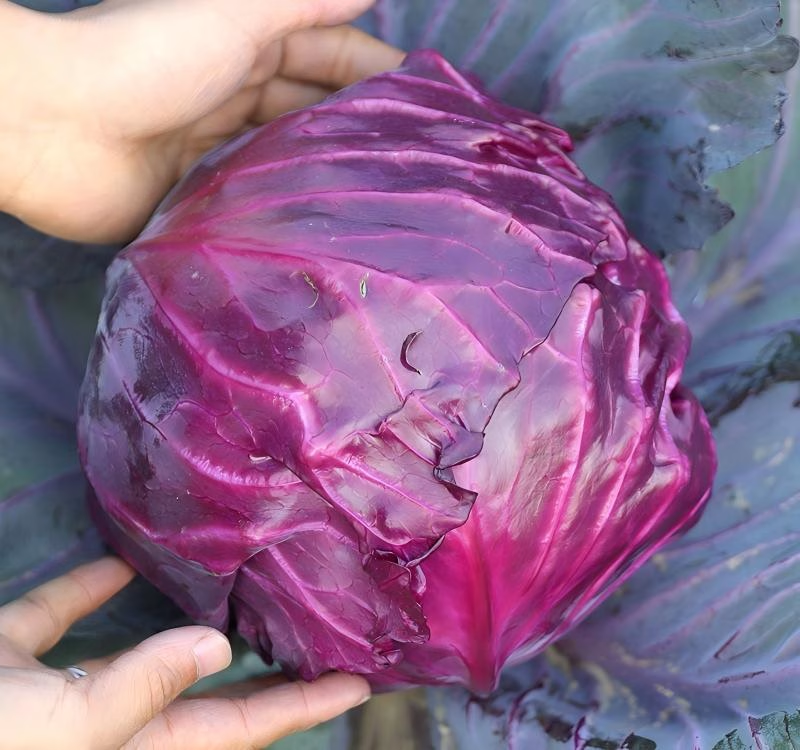Purple cabbage tastes similar to green cabbage, but it’s believed to contain more nutrients and offer more health benefits. For example, it may help fight inflammation, fight free radicals, and protect the heart. Today, we’ll share six health benefits of purple cabbage.
Nutrition of Purple Cabbage
Each 1 cup (89g) of raw purple cabbage contains:
Protein 1g
Dietary fiber 2g
Vitamin C, 56% of the RDA
Vitamin K, 28% of the RDA
Vitamin B6, 11% of the RDA
Vitamin A, 6% of the RDA
Potassium, 5% of the RDA
Vitamin B1 (also known as ammonium sulfate), 5% of the RDA
Vitamin B2 (also known as riboflavin), 5% of the RDA
Minor amounts of iron, calcium, magnesium, phosphorus, iron, zinc, manganese, and more
Provides antioxidant benefits
Purple cabbage contains a high concentration of antioxidants and various beneficial plant compounds that help fight oxidation and prevent free radical damage to cells.
Purple cabbage contains antioxidants including vitamin C and carotenoids, as well as flavonoids like kaempferol and anthocyanins. These nutrients are found in higher concentrations in purple cabbage than in broccoli.
Related research has shown that purple cabbage contains 4.5 times more antioxidants than broccoli. Furthermore, purple cabbage is a good source of sulforaphane, which scientists believe may help fight cancer.
Can Help with Inflammation
Purple cabbage has been shown in experiments to help with inflammation. Sulforaphane, found in purple cabbage and other cruciferous vegetables, is particularly potent, believed to have anti-inflammatory effects and may help prevent chronic inflammatory diseases such as cancer and diabetes.
In addition, studies have shown that applying purple cabbage topically can reduce inflammation. In one study, patients with arthritis applied purple cabbage leaves to the affected area. While pain was reduced, the effectiveness and speed of the purple cabbage application were not as strong as those achieved with pain relief ointments or gels.
Can Help Protect the Heart
Purple cabbage is rich in anthocyanins, a flavonoid compound that gives it its color.
Some studies suggest that consuming foods rich in anthocyanins can help reduce the risk of myocardial infarction by 11-32%.
Many scientists also believe that anthocyanins can help lower blood pressure and prevent heart disease. Purple cabbage contains over 36 different types of anthocyanins.
Helps maintain bone health
Purple cabbage contains several nutrients that benefit bones, such as vitamin C and vitamin K, as well as small amounts of calcium, manganese, and zinc. As mentioned earlier, 1 cup (89g) of raw purple cabbage provides 56% of the daily value of vitamin C, a crucial nutrient for bone growth.
It also supports bone health, and the vitamin K1 in purple cabbage is crucial for the body’s development of new osteoblasts.
Promotes intestinal health
Purple cabbage is a good source of dietary fiber, which is considered beneficial for intestinal health. 70% of the fiber in purple cabbage is insoluble, which promotes bowel movements and adds bulk to stool. The remaining 30% is soluble, which serves as a food source for beneficial intestinal bacteria, helps increase satiety, and slows the absorption of carbohydrates.


Leave a Reply